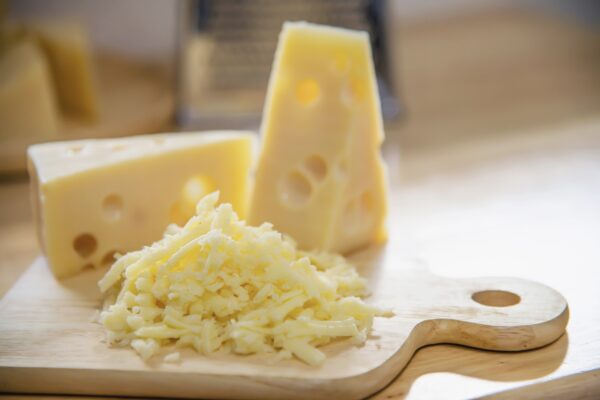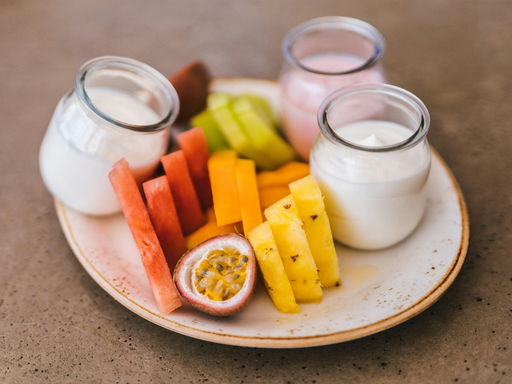
What are the Differences Between Cottage Cheese and Cheddar Cheese? Which One Is Healthier? Which One Tastes Better?
When comparing cheddar cheese vs cottage cheese, it’s clear that these two types of cheese have distinct differences in terms of flavour, texture, and nutritional value.
Cheddar Cheese vs Cottage Cheese: Taste & Texture
When looking at cheddar cheese vs cottage cheese, the differences in texture and flavour are immediately noticeable. Cottage cheese is a soft, lumpy cheese typically made from the curds of cow’s milk. It has a moist and creamy texture that can range from grainy to smooth, making it versatile for both sweet and savoury dishes.
Cheddar cheese, on the other hand, is a semi-hard cheese also made from cow’s milk, but with a firm, often crumbly texture that becomes sharper and more complex with age.
In terms of taste, cheddar cheese vs cottage cheese reveals a contrast as well. Cottage cheese has a mild, slightly tangy flavour with a subtle sweetness and a “fresh” or “clean” profile. Cheddar cheese delivers a much richer, sharper, and nuttier flavour with a bold tanginess that intensifies the longer it matures.
Health Benefits
When it comes to cheddar cheese vs cottage cheese, one of the most noticeable differences lies in their nutritional profiles, especially protein content. Cottage cheese’s standout benefit is its high protein, particularly in our Protein+ Cottage Cheese, which offers nearly double the amount found in conventional cheddar.
While cheddar does contain calcium and protein, cottage cheese takes the lead not only in protein density but also in overall nutrient balance. It’s rich in calcium, but that’s just one of several key nutrients that make it a smart addition to your diet. Cottage cheese is also an excellent source of vitamin B12, which supports nerve function and plays a critical role in preventing anaemia.

Nutritional Comparison
When comparing cheddar cheese vs cottage cheese, the nutritional differences clearly highlight why cottage cheese is often considered the healthier option. Cottage cheese is significantly lower in fat and higher in protein than cheddar, making it a great choice for those focusing on weight management, muscle-building, or simply eating more mindfully.
A half-cup serving of typical cottage cheese contains approximately 13 grams of protein, 5 grams of fat, and around 115 calories. In contrast, a one-ounce serving of cheddar cheese contains about 7 grams of protein, 9 grams of fat, and roughly the same 115 calories. While the calorie count may be similar, the quality of those calories differs dramatically.
Cottage cheese also contains much less saturated fat, a key factor for heart health, and offers about five times more potassium than cheddar cheese. Potassium is essential for regulating blood pressure and maintaining proper muscle and nerve function, giving cottage cheese an added edge nutritionally.
Overall, in the cheddar cheese vs cottage cheese debate, cottage cheese comes out on top for those looking for a leaner, nutrient-dense dairy option.
Cooking & Recipes
Cottage cheese is a splendid ingredient for spreads and dips when you want to make it thicker. You can also use it in lots of baked goods, as well as in pasta dishes for extra oomph. Brancourt’s Cottage Cheese is batch-made, which gives it a creamier taste from fresh Aussie milk, using a technique that goes back over 125 years, making it the best choice for your recipes!
Cheddar cheese is better for foods like grilled cheese sandwiches, and salads, or as a snack by itself. Popular foods include broccoli and cheddar soup, and burgers topped with real cheddar cheese slices.
Final Verdict: Cottage Cheese vs Cheddar Cheese
Both cheddar and cottage cheese are fantastic tasty options. However, if you’re also keen to benefit from health plus points like higher protein and calcium, with lower saturated fat and calorific content, then cottage cheese is always a worthy winner!







